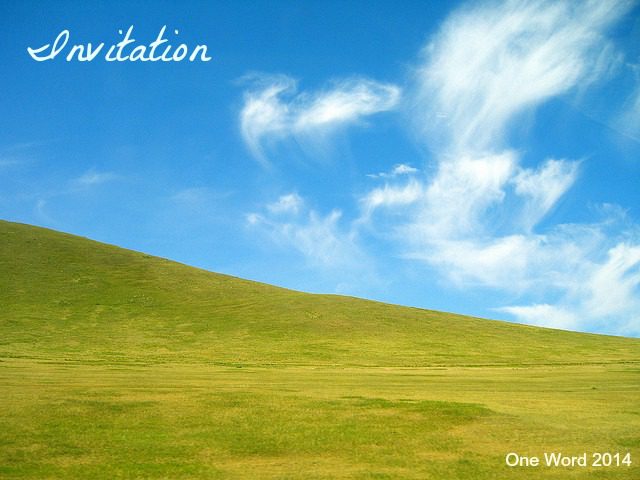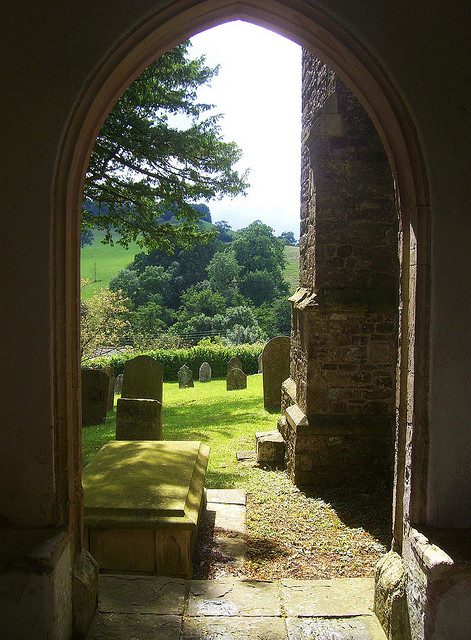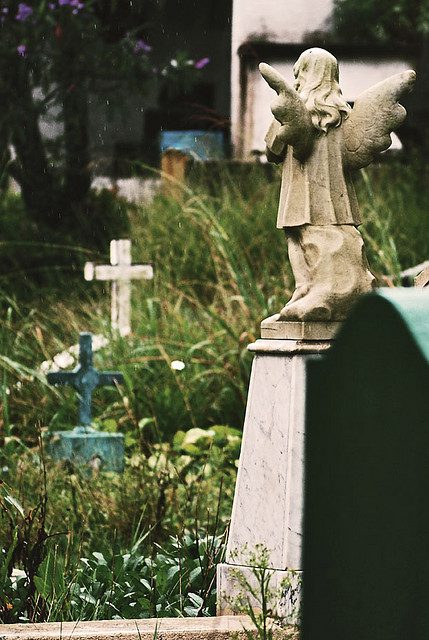Three weeks ago my husband and I watched the movie Melancholia. If you haven’t heard of the film, I’ll say this: That was probably not a good idea. (At least for me.)
It’s not a spoiler to explain that the film is about the end of the world. (There’s no suspense about that going into it.) The movie is named for the planet that eventually collides with and destroys earth. But the story of the film is about two sisters and the relationships within a family and, ultimately, about the meaning of everything. This is a movie about how the three main characters respond to (in the director’s view) the meaninglessness of life: one with grim acceptance, one with cowardly surrender, and one with almost childlike denial. None of the characters have any kind of faith.
Melancholia challenges us to ask, Why are doing anything? What does it mean that what all we build our lives around, all that we value, is capable of being destroyed in one single blast? And, if everything is going to be destroyed, does it matter whether we love each other well in those last moments? If you believe in nothing outside of the reality of matter and the physical world, how do you make sense of the vulnerability of life?
So, ummm, watching the world end is never fun, especially when there’s a child in the scene. And I’ve already written here about how much I’m over seeing depressing movies, especially since I became a mom. Like all of us, I encounter enough sadness and fear in this world, without needing to put myself in a place to be reminded of it. When I was crying to my husband about the movie a day later and begging him to tell me how he was able to go about his day as a normal human being when he had Melancholia to obsess over, he said: “Micha, this is not a shocker: You feel things deeply. I don’t.” Right, right.
But I was drawn to this movie; I needed to see the end. Now, I can’t stop thinking about those last few minutes of the film, which are actually the last few minutes of life on earth. The character Claire, overwhelmed by the loss she’s already experienced, panics to find a safe place for her young son. After giving up on that, she pulls her sister aside, asking that they do something beautiful for the last moments of earth’s existence: have a toast and play some epic piece of music, something to say all of this mattered. And in that moment, her sister Justine (Kirsten Dunst) refuses to do anything of the sort. Instead, she goes outside to her nephew and, under the backdrop of a sky full of the incoming planet, tries to calm his fears by helping him built a “magic cave,” a teepee of sticks, where he will feel safe.
I keep thinking about those last minutes of their lives, of the world. All of the characters in this movie were flawed. Justine does some horrific things and, at the same time, is vulnerable enough that we feel drawn to her and her pain. She is already hopeless so she holds no emotion as she faces the end. Her sister Claire is the responsible one, the good one. But at the end of everything, she has so much at stake—her husband and her son and her life—that she is a panicked mess. Somehow, it’s Justine, who has nothing, who is able to be present to her nephew in his fear and loss.
What does that mean? I keep asking myself. Chris and I have since had countless conversations about the hope we have, that the physical is not the limit to life. That because we believe God is good and that God exists outside of time and space, we don’t have to react to the thought that all of this beauty—the majesty of mountains, the creativity of life itself: all those glow-in-the-dark fish at the bottom of the sea, the crazy abilities of kangaroos to carry their babies in a skin pouch, the dearness of mama birds building their nests with hope and great usefulness—is for nothing or that it will one day amount to nothing. Because we believe in a Creator and, even more, because we believe in a Savior, we can hold tight to the hope that that all of this goodness, all this life, is worth living in and celebrating because God is in the business of making order out of chaos: on this planet, in our hearts, in our families, in our churches. God is making all the sad things come untrue. So even if we lose everything we value on this earth, even life itself, we can believe that God is renewing it all, reworking the story of earth into the bigger story of redemption.
I don’t know much about the writer/director, Lars von Trier. I’ve heard that his belief system is fairly fatalistic. I assume that he probably holds a view of the world that says this is all meaningless and impossible to sustain. But, even if that’s his framework, I found the care that Justine provides her nephew in the end incredibly moving and emotional. Does anything matter? von Trier is asking. And I think his answer is, Yes, loving each other well matters.
So, I’ve moved from a place of sorrow at the thought of this film, to a place of thankfulness: for the reminder that what we do with the smallest of our moments, how we choose to care for one another in details of our everyday—how we value life—is what ultimately defines meaning in this world.
And I’m grateful for the reminder that if all is lost, if this very moment our sun explodes everything—art and music and nature and humankind—into smithereens, one things remains: a loving God. And because that loving God is not bound by the rules of the universe, God’s care for us is not bound by the rules of universe either.











